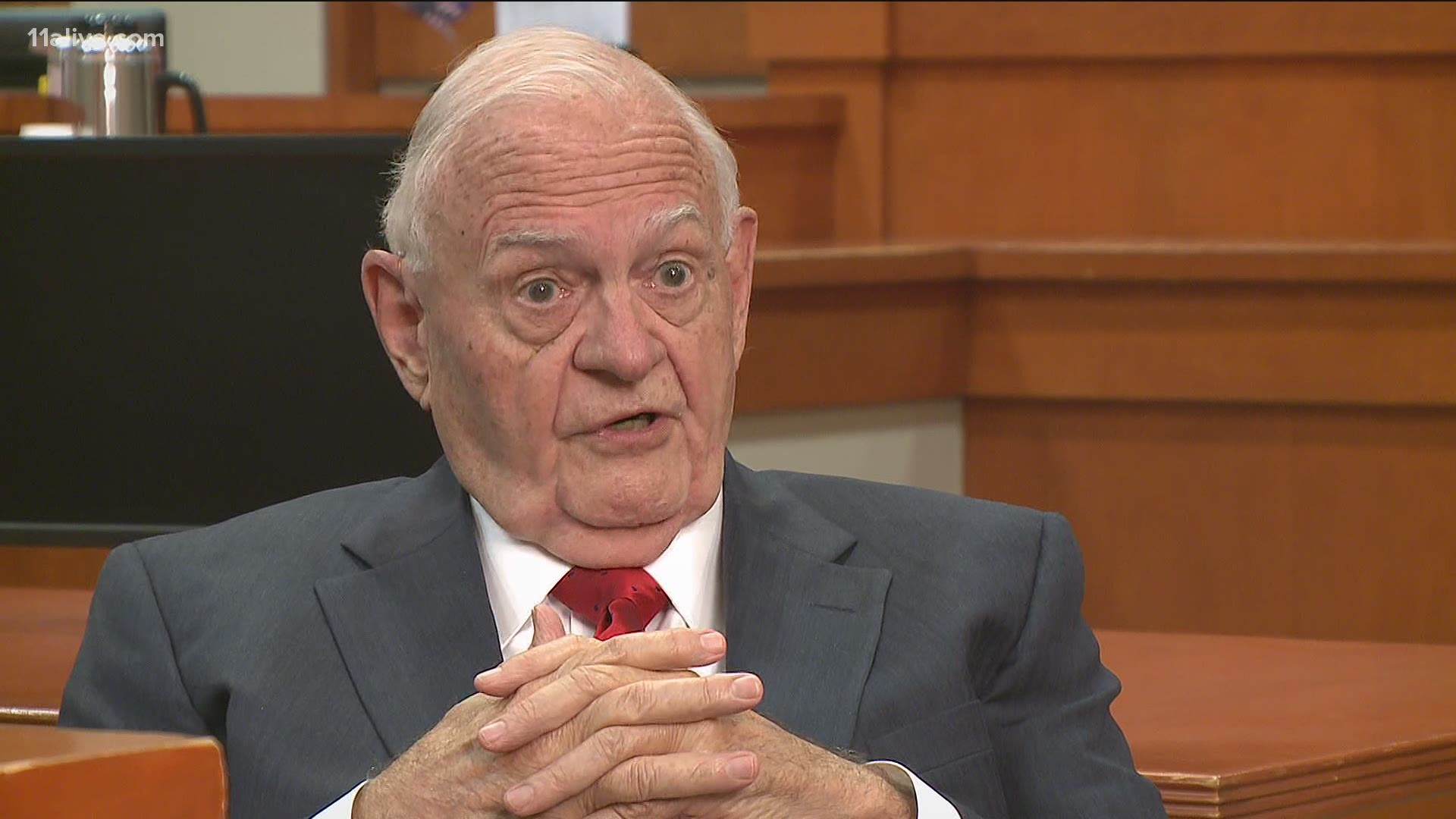DECATUR, Ga. — The DeKalb County judge who ordered the removal of Decatur’s Confederate monument will leave the bench at the end of the month.
Superior Court Judge Clarence Seeliger ruled that the monument in Decatur was a "public nuisance."
Those familiar with his careers weren't surprised Seeliger made that finding.
Though they weren’t acquainted, the backstory on Judge Seeliger has to start with Martin Luther King, Jr, and one of King’s many arrests.
In October 1960, King was arrested during a lunch-counter sit-in in Atlanta. Following that arrest in October 1960, a DeKalb County judge ordered King to the state prison in Reidsville to serve a four-month sentence for -- of all things -- driving without a valid Georgia driver’s license.
The judge who did it was DeKalb County State Court Judge Oscar Mitchell.
"If you did not have a lawyer, in his court, (and) you were African American, you were dead meat," Seeliger recalled. "He was a racist, through and through."
Mitchell’s reputation lingered. Twenty years after King’s arrest, in 1980, Seeliger was a young attorney who decided to run against Mitchell. Seeliger beat him.
One of Seeliger’s first acts was to hire Nesby Thomas, DeKalb County’s first African American bailiff. Thomas is the father of prominent Atlanta attorney Dwight Thomas.
As Seeliger got acquainted with his new courtroom, two flags caught his eye.
"There were two flags in the courtroom off to the right. One day, I walked over and said I’ll be damned. One of them is a Confederate battle flag. It’s got to go," he recalled during an interview with 11Alive News.
Seeliger had his bailiff remove it permanently.
"And then all hell broke loose," Seeliger said.
The retiring judge still has a folder full of the hate mail he’d gotten. In it, is a Ku Klux Klan mailer that published Seeliger’s home phone number and address.
One letter writer offered to suspend Judge Seeliger from a tree with a rope. The writer signed his name and address and wrote “hang in there.”
"I turned that over to the FBI and they actually prosecuted him for it," Seeliger said.
Undaunted, in 1992 Seeliger took it upon himself to also remove Georgia’s Confederate-influenced official state flag from his courtroom – years before the legislature re-designed it to exclude the prominent St. Andrews cross.
In the interim, Seeliger had helped kill the controversial Presidential Parkway project. The roadway would have connected downtown Atlanta with the Stone Mountain Freeway. Then-future Congressman John Lewis was among its opponents; Atlanta's mayor at the time -- Andrew Young, backed the project.
Seeliger wrote an eminent domain opinion that aligned with Lewis and residents who opposed the highway that would have run through Druid Hills and Candler Park.
Fast forward to the 21st Century. Judge Seeliger found himself at the center of another Confederate controversy in early 2020. This time, it was an obelisk in Decatur to commemorate the Civil War, built just as Jim Crow segregation had taken root in Georgia.
Protests at the monument intensified, worrying residents and law enforcement.
"They were really frightened about what might happen. They were worried about another Charlottesville," Seeliger said. "So on that basis, I declared it a nuisance."
Seeliger’s declaration gave DeKalb County the legal blessing to take it down, despite a state law recently enacted that forbade the removal of such monuments.
"The ways of the Legislature are weird and hard to understand," Seeliger chuckled.
Judge Clarence Seeliger made a career of trying to find understanding in the law – and the divisive symbols that spanned his 40 years on the bench.

